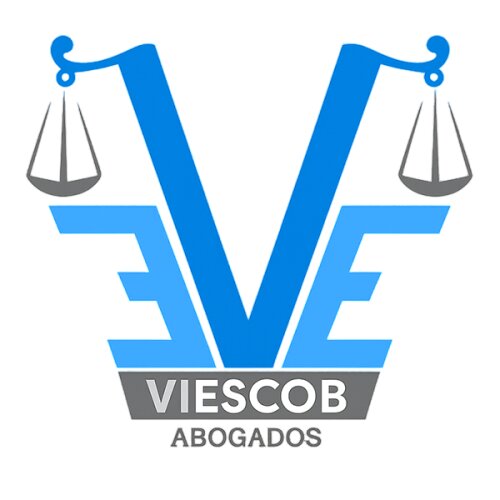Best Collaborative Law Lawyers in Providencia
Share your needs with us, get contacted by law firms.
Free. Takes 2 min.
Free Guide to Hiring a Family Lawyer
List of the best lawyers in Providencia, Chile
About Collaborative Law in Providencia, Chile
Collaborative Law is an innovative legal process designed to help parties resolve disputes amicably without resorting to litigation. In Providencia, Chile, it is most commonly used in family law cases, such as divorce, child custody, and property distribution, but its application is growing in other civil matters. The process brings together both parties and their respective lawyers to work cooperatively toward a mutually beneficial agreement. Collaborative Law emphasizes transparency, respect, and open communication, aiming to achieve a fair resolution while reducing emotional strain and financial costs.
Why You May Need a Lawyer
People in Providencia may need a Collaborative Law lawyer for a wide range of circumstances, especially where relationships, ongoing communication, or shared responsibilities are involved. Some common situations include:
- Divorce or separation, particularly where children or shared assets are involved
- Child custody or visitation disputes that could be resolved outside of court
- Division of marital property without traditional litigation
- Negotiation of child or spousal support agreements
- Family business succession planning and conflict resolution
- Neighbourhood disputes wanting to avoid contentious legal action
- Business partnership breakdowns or conflicts among co-owners
In these scenarios, a Collaborative Law approach allows parties to retain more control over the outcome, maintain privacy, and foster positive relationships post-dispute. A lawyer trained in this area will help guide the process, ensure legal protections, and facilitate constructive negotiations.
Local Laws Overview
In Chile, and particularly in Providencia, Collaborative Law has been gaining recognition as an alternative dispute resolution method. Key aspects of the local legal framework include:
- The Chilean Civil Procedural Code encourages alternative dispute solutions and negotiation prior to litigation
- Family law courts in Providencia are supportive of settlements reached through collaborative processes, especially in cases involving minors
- Participation in Collaborative Law is voluntary for all parties involved
- Each participant is represented by their own collaboratively trained lawyer; if negotiations fail, both parties must seek new legal counsel for courtroom proceedings
- Confidentiality is a cornerstone - discussions and proposals made during collaborative sessions are typically not admissible in court
- Chilean Bar Association offers resources and guidelines for lawyers who wish to practice Collaborative Law
While there is not a separate legal code for Collaborative Law in Chile, its principles are integrated into broader legal practices, especially in divorce and family matters.
Frequently Asked Questions
What is Collaborative Law?
Collaborative Law is a dispute resolution process where both parties and their lawyers agree to resolve conflicts amicably and outside of court, focusing on cooperation, transparency, and mutually beneficial solutions.
How is Collaborative Law different from mediation?
While both are alternative dispute resolution methods, mediation typically involves a neutral third party who helps facilitate dialogue. In Collaborative Law, each party is represented by their own lawyer, and all commit to negotiating without going to court.
Is Collaborative Law legally binding in Providencia, Chile?
Yes, agreements reached through the collaborative process can be formalized and submitted to relevant courts for approval, making them legally binding and enforceable.
When should I consider using Collaborative Law?
Collaborative Law is ideal when both parties wish to maintain a cooperative relationship, value privacy, and are willing to work toward a resolution without litigating. It is especially common in family and business disputes.
Can I switch to litigation if Collaborative Law fails?
Yes, but you must engage new legal counsel to represent you in court, as collaborative lawyers must withdraw from the case if negotiations break down.
How confidential is the Collaborative Law process?
The process is highly confidential. Anything discussed or proposed during collaborative sessions cannot usually be used as evidence if the case proceeds to court.
Do I need a specially trained lawyer for Collaborative Law?
Yes, it is important to work with a lawyer who has training or experience in the collaborative process to ensure a smooth and effective negotiation.
What types of issues can be resolved through Collaborative Law?
Primarily, collaborative law is used for family law matters such as divorce, child custody, and support, but it can also be applied to business disputes and civil matters.
How long does the process usually take?
The timeframe varies depending on the complexity of the issues and the willingness of parties to cooperate but typically is faster than traditional court proceedings.
What are the main advantages of Collaborative Law?
The main advantages include reduced stress and costs, more control over outcomes, privacy, preservation of relationships, and customized solutions tailored to the parties' needs.
Additional Resources
If you need more information or support regarding Collaborative Law in Providencia, the following resources may be helpful:
- Defensoría de la Familia de Providencia - offers guidance on family disputes and alternative resolution methods
- Colegio de Abogados de Chile - provides information on lawyers trained in collaborative practices and general legal guidance
- Juzgado de Familia de Providencia - the Family Court can formalize agreements reached through the collaborative process
- Community legal clinics and municipal offices - offer consultations and information sessions on collaborative approaches
Next Steps
If you believe Collaborative Law may be the right choice for your situation in Providencia, consider taking these steps:
- Reflect on whether you and the other party are willing to engage in cooperative negotiation
- Consult with a lawyer experienced in Collaborative Law to discuss your case and the process in detail
- Invite the other party to participate in the collaborative process with their own lawyer
- Gather necessary documents and information to facilitate open and honest negotiations
- Schedule an initial meeting with both parties and their lawyers to set expectations and ground rules
- Remain open to creative and flexible solutions that meet both parties' needs
Collaborative Law can provide a supportive environment for resolving disputes with dignity and respect. If you need further assistance, reaching out to a qualified legal professional in Providencia is the best way to begin.
Lawzana helps you find the best lawyers and law firms in Providencia through a curated and pre-screened list of qualified legal professionals. Our platform offers rankings and detailed profiles of attorneys and law firms, allowing you to compare based on practice areas, including Collaborative Law, experience, and client feedback.
Each profile includes a description of the firm's areas of practice, client reviews, team members and partners, year of establishment, spoken languages, office locations, contact information, social media presence, and any published articles or resources. Most firms on our platform speak English and are experienced in both local and international legal matters.
Get a quote from top-rated law firms in Providencia, Chile — quickly, securely, and without unnecessary hassle.
Disclaimer:
The information provided on this page is for general informational purposes only and does not constitute legal advice. While we strive to ensure the accuracy and relevance of the content, legal information may change over time, and interpretations of the law can vary. You should always consult with a qualified legal professional for advice specific to your situation.
We disclaim all liability for actions taken or not taken based on the content of this page. If you believe any information is incorrect or outdated, please contact us, and we will review and update it where appropriate.











